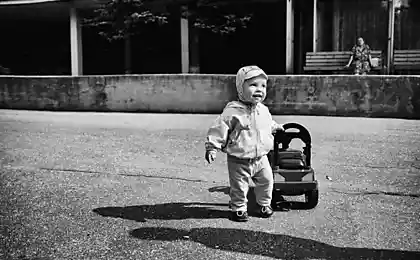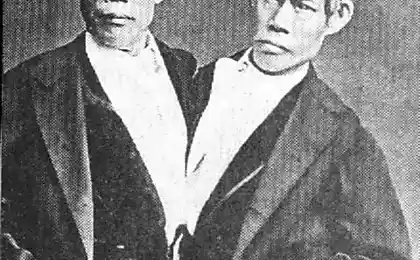130
She went to her mother-in-law's birthday, although she and her mother were born on the same day.
“Last week we celebrated my mother-in-law’s birthday. We gave her the car she wanted for a long time. And my mother was offended at me, because on this day I have two birthday parties - my mother and mother-in-law. But I decided to go to the party with my mother-in-law, not my mother, says Alice.

My mother can’t admit it, but we have a difficult relationship with her. I talk to my mother more often than my mother. As a child, I lacked my mother’s attention, and I learned to do without her help. She always had more things to do than me, and her upbringing was that she checked my homework in the evening and scolded me if I didn’t do anything around the house.

Not a single morning, not a single graduation mom came to cheer for me and support. My only support was my grandmother, but she died when I was 10 years old. We lived with my stepfather for a while, he was a good person, cared for me better than my mother, was interested in academic success, walked with me. I was very lonely when my stepfather left us.

I couldn’t afford to go to university, and my mother refused to pay for my tuition. I had to find a job and study in absentia. I got married in my sophomore year. We decided to move to live with my husband’s parents to save for our own housing. Suddenly I was warmly welcomed by my husband’s parents.
My mother-in-law taught me how to cook, and she became closer to me than my mother. When I came in tired after work, she always made tea, and we talked to her all night. That's what I've been missing my whole life. And then I started calling my mother-in-law mom because I started to feel like I was part of the family.

During 12 years of marriage, my husband and I were able to save up for our apartment. We have two wonderful children. Gradually, we helped my husband’s parents build a house in the country. And communication with my mother never worked out. I don’t want to share any news with her, and I rarely see her. With children there were topics for conversation, and so we rarely visit her.

My mother is offended, she does not understand why I am more comfortable with my mother-in-law than with her. Even children do not like to visit their grandmother. This year I decided to go to my mother-in-law for my birthday because she replaced my mother. I congratulated my mother the next day. Now she's offended that I didn't come, and she was embarrassed in front of the guests. If she had thought more about her daughter than what other people would think, maybe the situation would have been different.”

Children's grudges are with us for life. Unresolved conflicts with parents, inefficiencies only further alienate close people from each other. The paradox is that if you do not tell your mother why she is offended, she will not understand why your daughter or son does not want to communicate with her. Our parents are raising us the way they can. They all make mistakes, but their vision of the world is completely different from that of children. It is always necessary to establish a relationship or put an end to the “and” in order to go on, so as not to hold a grudge against relatives and be honest with themselves.

My mother can’t admit it, but we have a difficult relationship with her. I talk to my mother more often than my mother. As a child, I lacked my mother’s attention, and I learned to do without her help. She always had more things to do than me, and her upbringing was that she checked my homework in the evening and scolded me if I didn’t do anything around the house.

Not a single morning, not a single graduation mom came to cheer for me and support. My only support was my grandmother, but she died when I was 10 years old. We lived with my stepfather for a while, he was a good person, cared for me better than my mother, was interested in academic success, walked with me. I was very lonely when my stepfather left us.

I couldn’t afford to go to university, and my mother refused to pay for my tuition. I had to find a job and study in absentia. I got married in my sophomore year. We decided to move to live with my husband’s parents to save for our own housing. Suddenly I was warmly welcomed by my husband’s parents.
My mother-in-law taught me how to cook, and she became closer to me than my mother. When I came in tired after work, she always made tea, and we talked to her all night. That's what I've been missing my whole life. And then I started calling my mother-in-law mom because I started to feel like I was part of the family.

During 12 years of marriage, my husband and I were able to save up for our apartment. We have two wonderful children. Gradually, we helped my husband’s parents build a house in the country. And communication with my mother never worked out. I don’t want to share any news with her, and I rarely see her. With children there were topics for conversation, and so we rarely visit her.

My mother is offended, she does not understand why I am more comfortable with my mother-in-law than with her. Even children do not like to visit their grandmother. This year I decided to go to my mother-in-law for my birthday because she replaced my mother. I congratulated my mother the next day. Now she's offended that I didn't come, and she was embarrassed in front of the guests. If she had thought more about her daughter than what other people would think, maybe the situation would have been different.”

Children's grudges are with us for life. Unresolved conflicts with parents, inefficiencies only further alienate close people from each other. The paradox is that if you do not tell your mother why she is offended, she will not understand why your daughter or son does not want to communicate with her. Our parents are raising us the way they can. They all make mistakes, but their vision of the world is completely different from that of children. It is always necessary to establish a relationship or put an end to the “and” in order to go on, so as not to hold a grudge against relatives and be honest with themselves.
Beauty procedures, which used to give the last penny, and now they are not needed for nothing
When he saw the homeless man's face, he froze in place, and that meeting changed everything.























